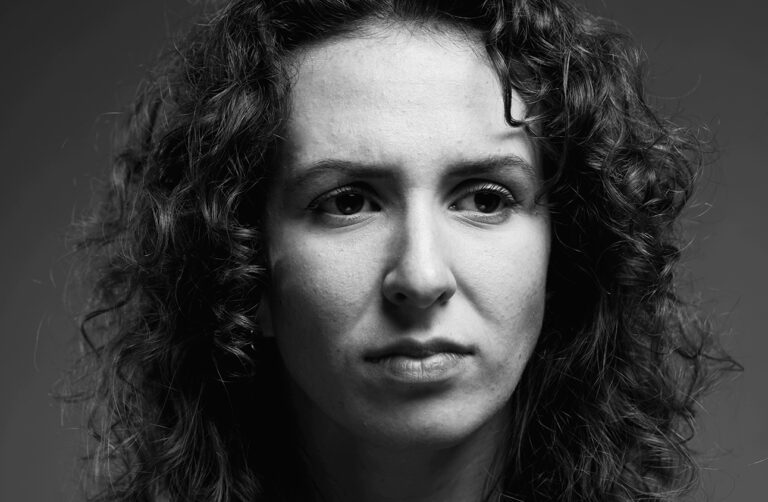

We need to have a conversation about grief. Probably more than one. It’s a feeling we, as a culture, spend a lot of energy avoiding, but it’s everywhere, all the time. It’s an unavoidable part of living and the more comfortable we get with grief, the better off we will be. We look at someone who is grieving a loss and are grateful it’s not us. We might even think there is no way we could survive if we were in their shoes. We want so badly to believe that bad things don’t happen to good people that accepting that grief is going to be part of our journey feels threatening. It means admitting that we know our lives aren’t always going to go well. It’s a hard truth, and it is the truth.
Grief is something we all experience, probably far more frequently than we even realize. There are major losses of life and love. And also, any time things don’t go as expected, there is some form of grief. Sometimes it is a drop you to your knees, knock the wind out of you grief. Sometimes it is a quiet, almost sweet ache. And sometimes it’s just a moment that needs recognition before you move on with your day.
 If you’re having a hard time getting pregnant, you may grieve the smoother process you expected. If you’re pregnant, you may grieve the life and freedom you are leaving behind. When you find out you are having a boy, you may grieve the daughter of your daydreams. When you find out you are having a girl, you may grieve the little boy that might have been. When your child reaches the next stage of life, no matter how excited you are for them and yourself, you may grieve the younger version of them you love so deeply and the meaning caring for them provided you. If your child receives a difficult diagnosis, you may be simultaneously relieved to have an explanation and grieve the life path you thought they would travel. When your friend cancels dinner at the last moment, you might grieve the sense of connection you were craving. When you are doing the millionth load of laundry for the month, you might grieve a more carefree self from your past. We probably have small moments of grief every day. When we allow them, these smaller griefs pass. When we do not, they build up over time into irritability, resentment, and despair.
If you’re having a hard time getting pregnant, you may grieve the smoother process you expected. If you’re pregnant, you may grieve the life and freedom you are leaving behind. When you find out you are having a boy, you may grieve the daughter of your daydreams. When you find out you are having a girl, you may grieve the little boy that might have been. When your child reaches the next stage of life, no matter how excited you are for them and yourself, you may grieve the younger version of them you love so deeply and the meaning caring for them provided you. If your child receives a difficult diagnosis, you may be simultaneously relieved to have an explanation and grieve the life path you thought they would travel. When your friend cancels dinner at the last moment, you might grieve the sense of connection you were craving. When you are doing the millionth load of laundry for the month, you might grieve a more carefree self from your past. We probably have small moments of grief every day. When we allow them, these smaller griefs pass. When we do not, they build up over time into irritability, resentment, and despair.
 In our culture, there is currently a big focus on being positive and accepting. We’re supposed to have a growth mindset, look for super-powers instead of deficits in ourselves and others, and manifest our dreams from a place of abundance. All of this is amazing and wonderful and great for mental health. AND, we can only do those things if we first recognize and allow our grief. Ignoring grief or powering through does not make it go away. It will just be waiting for you around the corner. Acknowledging grief about things that are not the big, accepted losses is not a sign of weakness. It doesn’t mean you’re overly sensitive or selfish. It doesn’t mean you aren’t grateful for the life you have. It doesn’t mean you don’t also see the silver lining. The fact that other people are grieving bigger losses doesn’t make yours invalid. These moments of grief mean you’re human. They mean you’re doing this life-thing right. You’re engaged. You care. If we judge our grief, push it away, or stave it off for another day, we’re only hurting ourselves. If we make room to feel it and talk about it, not only are we helping our own process, but we are also giving permission to the people around us to recognize theirs. We’re all feeling it, so let’s share it. Everything is easier to bear when we’re not alone.
In our culture, there is currently a big focus on being positive and accepting. We’re supposed to have a growth mindset, look for super-powers instead of deficits in ourselves and others, and manifest our dreams from a place of abundance. All of this is amazing and wonderful and great for mental health. AND, we can only do those things if we first recognize and allow our grief. Ignoring grief or powering through does not make it go away. It will just be waiting for you around the corner. Acknowledging grief about things that are not the big, accepted losses is not a sign of weakness. It doesn’t mean you’re overly sensitive or selfish. It doesn’t mean you aren’t grateful for the life you have. It doesn’t mean you don’t also see the silver lining. The fact that other people are grieving bigger losses doesn’t make yours invalid. These moments of grief mean you’re human. They mean you’re doing this life-thing right. You’re engaged. You care. If we judge our grief, push it away, or stave it off for another day, we’re only hurting ourselves. If we make room to feel it and talk about it, not only are we helping our own process, but we are also giving permission to the people around us to recognize theirs. We’re all feeling it, so let’s share it. Everything is easier to bear when we’re not alone.
Sincerely,
Natalie Whiteford, PhD

I am a Licensed Clinical Psychologist serving Boulder County and the Front Range of Colorado. For the past 16 years, I have worked with a variety of individuals, couples, and groups. Because of my unique experiences as as a mother, I am now focusing my work on the specific needs of parents, especially parents of neurodiverse children. I will help you reconnect with yourself and find steadiness in your journey.



I am a Licensed Clinical Psychologist serving Boulder County and the Front Range of Colorado. For the past 16 years, I have worked with a variety of individuals, couples, and groups. Because of my unique experiences as as a mother, I am now focusing my work on the specific needs of parents, especially parents of neurodiverse children. I will help you reconnect with yourself and find steadiness in your journey.
Parenting is hard work! It is easy to lose sight of your own needs and self-worth. I created my blog to help parents everywhere maintain perspective and assist them in their parenting journey. It will containing relevant information on Parenting, Therapy, Self-Care, Self-Compassion our Educational System, Special Events and more. Sign up now. You can cancel anytime.
Whiteford Parent Support © 2024. All Rights Reserved.
Sign up to recieve future blogposts related to Parenting, Therapy, the Educatonal System, Special Events and more. You can cancel at anytime.